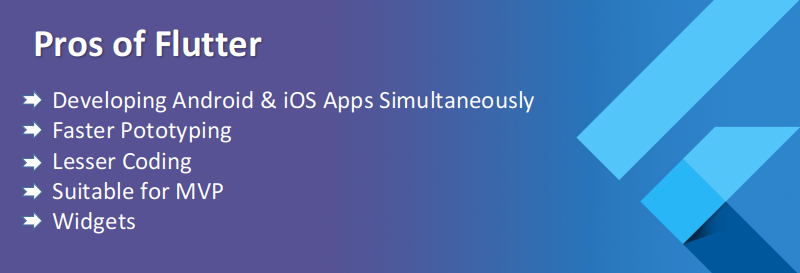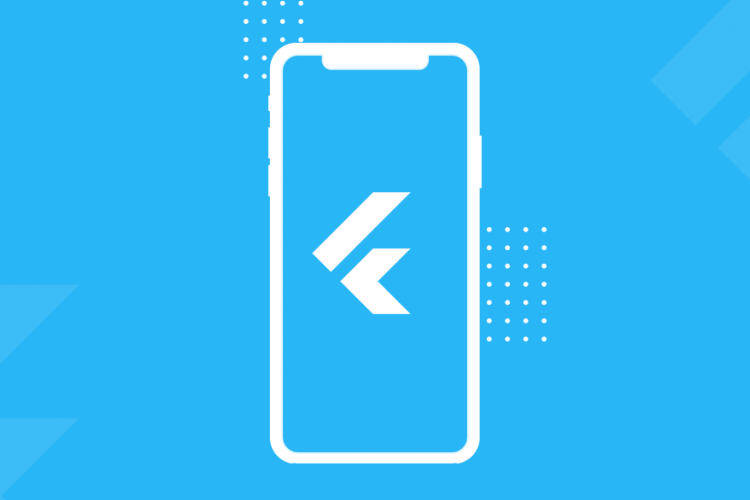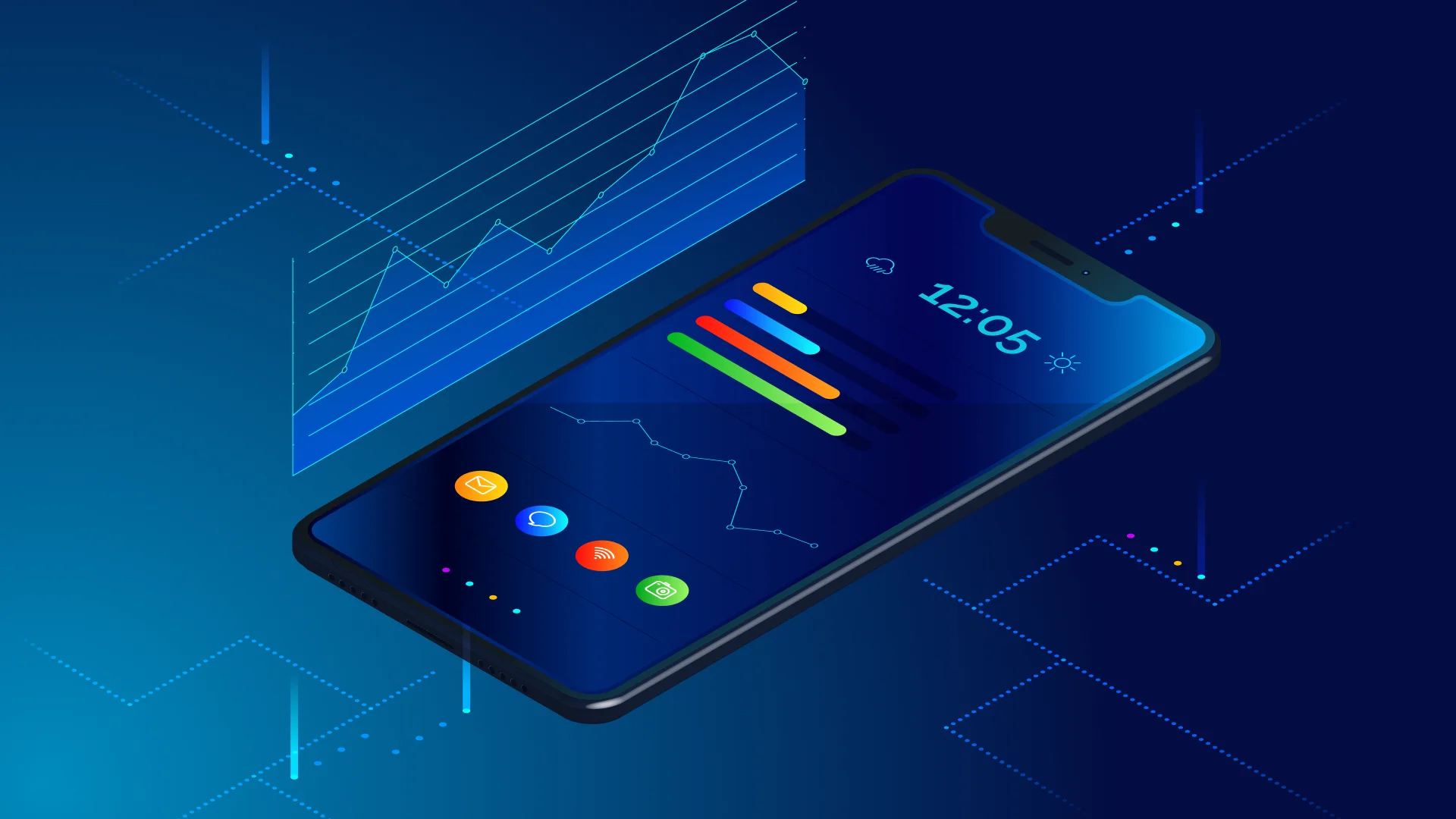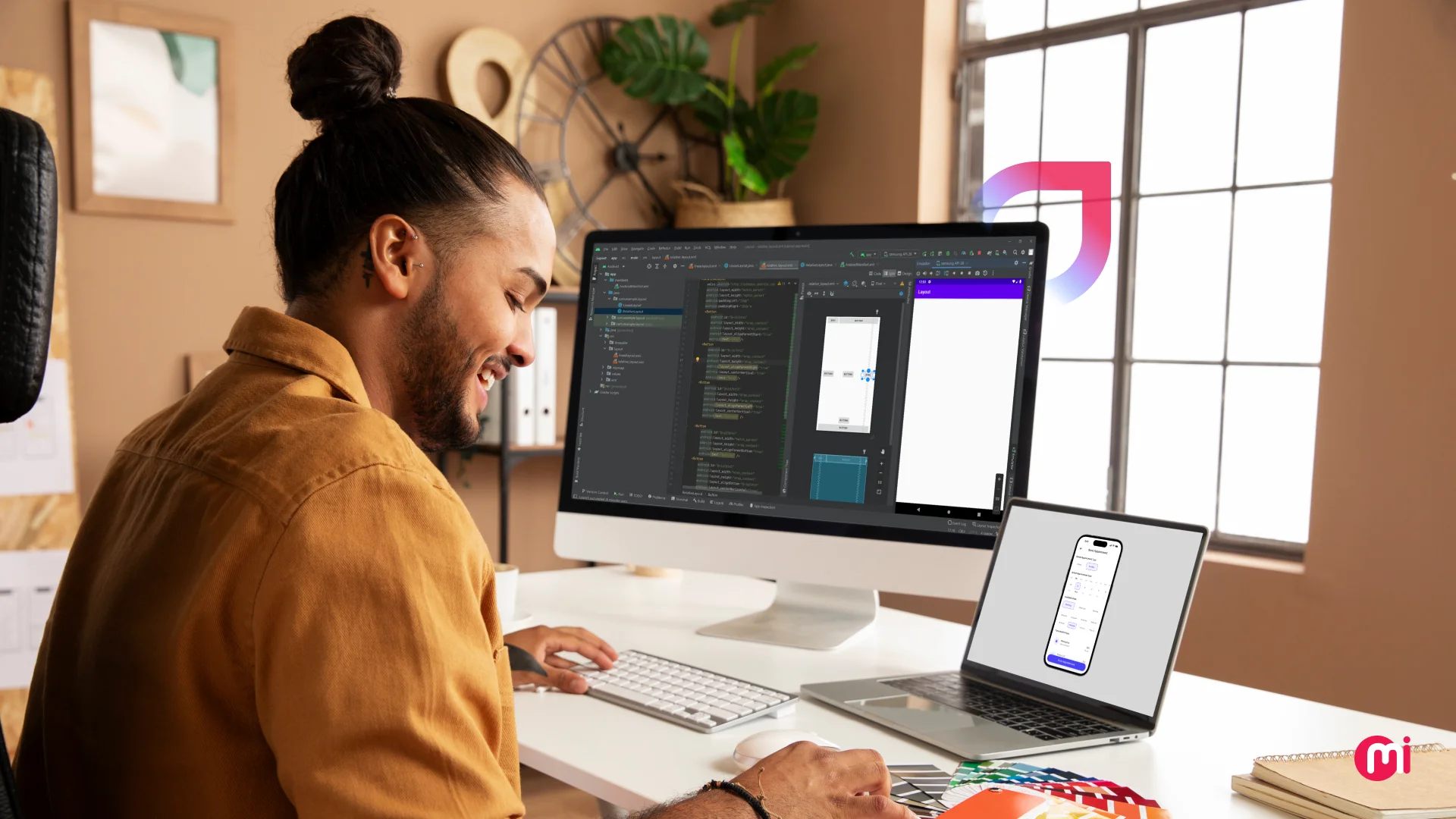Flutter for Cross-Platform App Development: To use or not to use?
- Mobile
- June 10, 2019
In recent years, the popularity of cross-platform mobile app development has been increasing. As an app development platform, it has been catering to the needs of forward-thinking businesses.
Android and iOS have been the most popular platforms to develop mobile apps. It is necessary to write different codes, when you develop apps on these platforms. However, with cross-platform app development, you can save your efforts and time.
Various tools have been developed to facilitate cross-platform development of apps. You must be familiar with web-based tools like Xamarin developed by Microsoft, PhoneGap developed by Adobe, and React Native developed by Facebook.
Developers have varying opinions on whether they should use Flutter for cross-platform app development. Here, you will come to know about its features, pros and cons.
What is Flutter and Why Was It Developed?
Flutter is a software development kit (SDK) for mobile apps, developed by Google. It has been developed to build mobile applications for the major app development platforms, like Android and iOS.

As an open-source framework, Flutter is free and it offers a complete package of development tools, widgets and frameworks. This enables the app developers get a better experience, easing up the process.
Although Flutter is a comparatively new tool, companies like Tencent and Alibaba have already embraced the technology. Besides, Flutter is being used by Google in the app called ‘Google Ads’.
Therefore, Flutter has already proven its importance in developing native-looking apps on Android and iOS, using the same code base. As a full product, Flutter has made its way into the market since December 2018.
Read also: How Flutter is Better Than Native iOS App Development
Important facts about Flutter
- The enriched UI elements of Flutter follow particular guidelines
- Flutter is open source and comes free of cost
- The Flutter architecture is based on reactive programming
- The developers can benefit from its highly customizable and fast widgets
- An object-oriented programming language, called Dart, has been used to develop Flutter
- The C++ rendering engine is used in Flutter
- React Native app development turns out to be the main competitor of Flutter
Read also: Flutter Vs. React Native: Let’s See Who the Winner is
What Google has worked on
- Support for app development on Windows
- Key parts of the engine to enhance performance
- Tooling for Visual Studio Code and Android Studio
- Support for a greater number of Firebase APIs
- Support for ads, charts and online video
- Accessibility and internationalization
- Impressive documentation
- Bug fixes
This software development kit, enables the developers to come up with 2D mobile apps. It can be used to build feature-rich apps, which support, geolocation, cameras, storage and network. To develop high-quality stock apps or branded designs, Flutter is perfectly suitable.
Pros and Cons of Flutter
Before you consider using Flutter to develop your business apps, have a look at its pros and cons.
Pros of Flutter
Flutter has many advantages that attract app developers as well as business owners to choose this framework. Here are some of the major benefits of Flutter:

Developing Android and iOS Apps Simultaneously
The same code base is used in Android and iOS apps that are built using Flutter. Therefore, it is not necessary to develop a particular system and then repeat the same mechanism for the other.
Apps that are developed using Flutter are equally effective on both Google and Apple platforms. The process requires less coding during development and business firms can launch the apps on both the platforms simultaneously.
Read also: How Much Does Flutter App Development Cost?
Faster Prototyping
The hot reload feature of Flutter is one of its core aspects that appeals to developers offering Flutter development services. Using this feature, they can perceive any change that is made to the code in real time. They need not restart the app.
The source code, which is updated, can be injected to the app under a running condition.
The widget tree is automatically built by Flutter, so that the changes show up in real time. The benefit of hot reload is that, the process becomes dramatically faster.
The entire process is improved and the developers are able to identify the bugs, no sooner than they appear. Eventually, they can test the new features or UI without any hassle.
Lesser Coding
The Dart programming language used in Flutter app development is strongly typed and object-oriented in nature.
In Flutter, the programming style is declarative and reactive. The JavaScript bridge is not necessary in Flutter, that enhances the overall performance and startup time of the app.
The AOT (Ahead-of-Time) compilation makes it possible for Dart to achieve this. Dart also uses the JIT (Just-in-Time) compilation that enhances the development workflow, permitting the hot reload feature to get the UI refreshed during the development process. Therefore, it is not necessary to build it from the scratch.
Suitable for MVP
At times, business firms need to showcase their products to investors in a short time. In these situations, a Flutter mobile app can serve the purpose. On both Android and iOS platforms, the apps look native.
This will enable the investors gain a better idea on the final look of the MVP. It costs more money and takes far more time to develop two separate apps. Evidently, it can enhance the productivity of your business.
Read also: Why Choose Flutter for MVP Development?
Widgets
Regardless of the size of the screen, the widgets should be having a natural look. These are needed for the view and interface of the apps.
Besides, your widgets should be easily customizable, extensible and fast. Flutter comes with an enriched set of widgets, which offers extensive capabilities to create intricate customized widgets.
Besides, these can be used for the app itself as well as for the entire screens. The documentation in Flutter states that each widget comes as an absolute declaration of the user interface.
Other frameworks separate view controllers, views, layouts and various other properties. On the other hand, Flutter comes with these widgets as a unified object model.
Cons of Flutter
The Flutter framework is comparatively young, and it will still be developing. The toolkit comes with certain flaws, as presented here:
Limitations in Libraries
Although Flutter has several important libraries, the framework is comparatively new. You might not find all the functionalities that you need.
On the contrary, native apps come with all the functionalities in their SDKs. These include Twilio, Stripe and services like UStream and WoWza. Developers using Flutter need to develop these libraries, and this itself is a time-consuming affair.
Size of the Apps
The apps developed using Flutter are larger than 4 MB each. Although the Google team is working to optimize the size, this could be a concern for certain business houses, looking for small-sized apps. The inbuilt widgets in Flutter-made applications make their size larger.
Unstable Tool
Flutter is a new tool, and therefore, unstable. The developers are encountering new concerns, like failure to cope with changes in the user interface of the Android and iOS.
Besides, some developers have claimed that Flutter needs to be further upgraded, so that it can handle large eCommerce applications.
Read also: Is Flutter the Right Solution for Mobile App Startups?
To Wrap Up…
Although certain concerns linger regarding the usability of Flutter, Alibaba and Tencent have been using it successfully. It appears that Flutter can immensely benefit tech-based firms, startups and eCommerce companies.
In case you want a faster development of 2D apps, and gain greater efficiency while releasing it on multiple platforms, you might consider using Flutter.
Besides, it can benefit designers and programmers, as it makes the coding process more compatible, efficient and faster.
Flutter is likely to see major upgrades in the coming years. Let’s hope for the best.
When considering how Flutter can benefit your business, there are numerous advantages to explore. However, to fully capitalize on these benefits, you need to hire experienced Flutter developers who are the right fit for your cross-platform app development project.
That’s where MindInventory comes into the picture. Our team of expert Flutter developers is dedicated to working closely with you to meet your project’s varying requirements. Looking for the right-fit Flutter developers for your project? Share your requirements with us today!
FAQs About Flutter and App Development
Flutter is an cross-platform, open-source mobile SDK launched by Google in order to help developers build mobile apps for Android and iOS platforms, using a single codebase.
There are many benefits to choose Flutter over other platforms for mobile app development like It overcomes the limitations of cross-platform approaches, rich widgets, great performance, etc.
With constant efforts, changes and rich widgets, Flutter will be the first choice to develop cross-platform applications in the future. It is a complete SDK to develop apps with great user experience.














